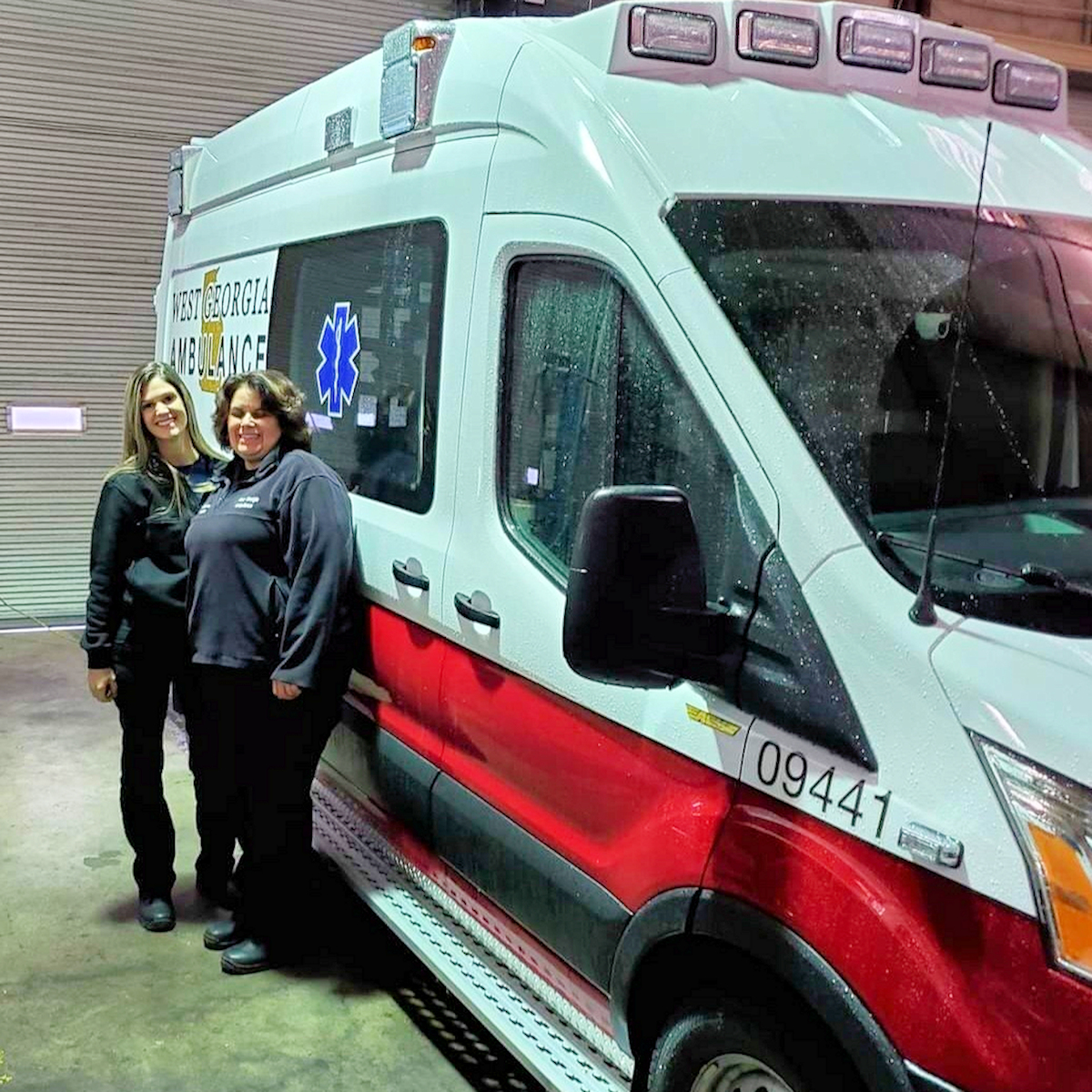Tanner Health System and West Georgia Ambulance are rolling out a new community paramedic program in west Georgia that's helping patients stay on top of their health to avoid unnecessary readmissions following a hospitalization.
The program, which began in February 2021, extends the role of local emergency medical service (EMS) paramedics by allowing them to work as a part of a patient's care team and make home health visits after a patient gets discharged from the hospital.
The program is expanding the reach of primary care and public health services in the community to help patients better manage their health care on their own.
"When a patient is discharged, the last thing they want is to end up back in the hospital," said Craig Worland, vice president of operations and network integration for Tanner. "We're grateful to have West Georgia Ambulance partner with us to bring this incredible resource to our community. It's going to help us ensure that our patients have a safer, more comfortable transition home from the hospital."
In the program, community paramedics are essentially an extension of a patient's medical care team and are trained in areas of primary care, disease management and more.
During a visit, paramedics perform medical assessments and address questions and issues regarding medications, discharge instructions or follow-up care.
 "We found that when some patients get discharged from the hospital, they get home feeling frustrated and confused. Sometimes they even feel like they've been forgotten," said Dott Thomas, a paramedic for West Georgia Ambulance and the community paramedic program. "With this program, we show them that they're not alone."
"We found that when some patients get discharged from the hospital, they get home feeling frustrated and confused. Sometimes they even feel like they've been forgotten," said Dott Thomas, a paramedic for West Georgia Ambulance and the community paramedic program. "With this program, we show them that they're not alone."
Paramedics schedule their initial visit within two days after their patient is discharged.
Sometimes, Thomas said, these visits can last up to an hour, and appointments can be extended, if necessary, by the patient's care team.
"Patients know they have these medical problems but may not know how it affects them, or they may not fully understand their discharge instructions," said Thomas. "When we get there, we try to give them a little pep talk to motivate them and explain how they can manage their condition and live a normal life with their diagnosis."
Thomas has been with West Georgia Ambulance since 2018 and has worked as a paramedic for the past two years.
She and Judy Simpson were among the first paramedics to join the program.
"Often, we find patients are returning home feeling overwhelmed because they've been given their discharge instructions and told to make follow-up appointments and to pick up medications," said Simpson, who has been a paramedic with West Georgia Ambulance for more than 21 years. "Sometimes they don't because they aren't able or don't know how to. In this program, we bring our resources to them. If they need help scheduling appointments, setting up their equipment, answering questions, or understanding what's next, we're there to help them. And we can help them stay in touch with their care team at Tanner."
Currently, West Georgia Ambulance has four paramedics in the program, and since it began, the team has performed more than 230 visits with patients across Carroll County.
Most of the cases Simpson and Thomas have seen are patients with chronic illnesses like COPD, congestive heart failure, diabetes and symptoms of COVID-19.
"We help patients set up their oxygen if they're using it, and we help them with any medical equipment they need. We'll also perform home safety assessments to check their environment for things like trip and fall hazards."
Simpson said that she also makes sure her patients understand their physician's discharge orders, including any prescribed medications, dietary requirements and follow-up appointments.
"This is an excellent resource to have in our community that's going to benefit so many people," Simpson said. "By helping them better understand their health or their diagnosis, we can help them take better care of themselves."
Along with discharge instructions, patients in the community paramedic program also receive a remote patient monitoring kit, or RPM, to help them manage their care from home with the direct support of their care team at Tanner.
Remote patient monitoring offers a way for patients to manage their health using digital health monitoring devices such as digital glucometers, weight scales, blood pressure cuffs and finger blood oxygen meters.
RPM can be used to monitor a range of symptoms and chronic illnesses, including hypertension, diabetes, COPD, heart disease, cancer, COVID-19 symptoms and more.
There is no cost associated with the community paramedic program. However, patients must be referred by their physician or their care manager.
Currently, the program is only available at Tanner Medical Center/Carrollton but could soon expand to the health system's other facilities throughout the region.
To learn more about Tanner's remote patient care programs and more, visit tanner.org/community-impact.